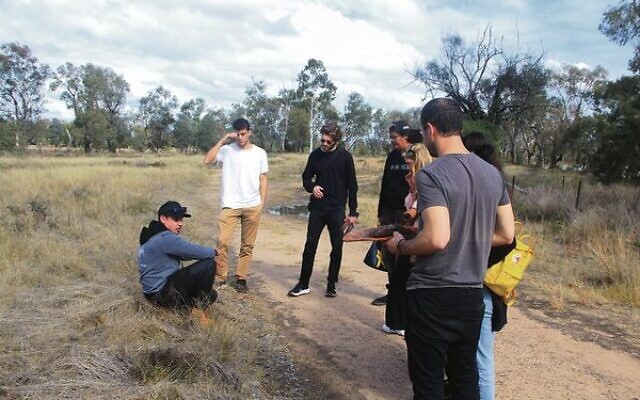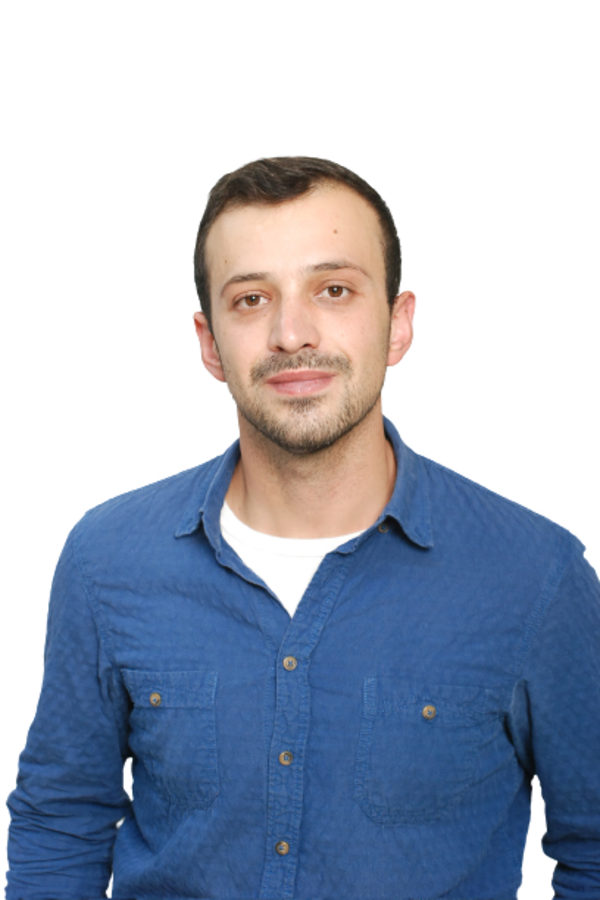The power of listening
While our historical backgrounds differ, our journeys share common themes. The struggle for self-determination, recognition and security deeply resonates with both peoples’ past and present.

In a world often plagued by division and crowded with conflicting narratives, the transformative value of listening and genuinely trying to understand each other cannot be overstated.
As an Israeli participant in the Derech Eretz program, I recently had the privilege of engaging with the First Nations communities of Boggabilla and Toomelah in northern NSW. It was a profound experience that not only provided me with invaluable insights into a rich and vibrant culture but also helped me better understand the growing divisions back home.
Initiated by Shalom College in 2005, run by Stand Up since 2008, and joined this year by the Australasian Union of Jewish Students, Derech Eretz draws its guiding principles from the Jewish commitment to social justice and seeks to establish a meaningful relationship between Australia’s Jewish community and its First Nations peoples.
As an Israeli shaliach (emissary) to Australia assigned to work with Jewish students, I initially questioned the relevance of the program to my role and my relevance to the program as an outsider. As I navigated through this unfamiliar social landscape, however, I discovered striking similarities between the experiences of Australia’s First Nations and the Jewish people.

While our historical backgrounds differ, our journeys share common themes. The struggle for self-determination, recognition and security deeply resonates with both peoples’ past and present. The diversity of First Nation culture captivated me. Each community has retained its own unique traditions, stories and art forms, passed down through generations, which together contribute to the mosaic of Australian heritage. Yet, amid this diversity, the importance of cultural preservation and the shared values of family, community and connection to land act as a unifying thread. These echo the shared heritage and collective identity maintained by the Jewish people, despite our historical dispersion across the globe.
During our visit to Boobera Lagoon, a sacred site for the Gomeroi tribe, I had a memorable encounter with Buddy Hippi, a member of the Boggabilla community. I asked him about “songlines”, the routes sung and memorised by Indigenous Australians to navigate the land. He seemed surprised by the question and passionately explained that songlines were not merely geographical maps but personal journeys, with each engagement and connection becoming part of an individual’s own songline. He later expressed his eagerness to learn Hebrew words, repeatedly uttering “Shalom, shalom, shalom” to memorise it.
That day, a fellow Derech Eretz volunteer noted how lucky I was to be in this program. “You’re learning about Australia as it should be, the proper introduction we should have had,” she said, explaining that stigmas and preconceptions often make it hard for Australians to appreciate this community’s beauty. Her words resonated with me. We often shroud our minds with assumptions that leave no room for anything else. They prevent us from appreciating the unknown and hinder our ability to empathise with others.
This introspection has allowed me to better understand my role as a shaliach. It made it clear that connecting with the Jewish Diaspora can and should take many forms and that meaningful engagements require a genuine desire to learn about the specific needs and desires of a community. True dialogue and listening should always take precedence over imposing preconceived notions or solutions.
The Hebrew term “derech eretz” translates as “the way of the land” and refers to conduct based on decency and respect. It aligns with the First Nations concept of “dadirri”, a spiritual practice that could be translated as deep listening. Both concepts underline the significance of respecting one’s surroundings, of momentarily silencing ourselves and allowing other voices to be heard – both in ourselves and in our shared environment.
In the Israeli context, “dadirri” holds particular relevance today. The nation is more divided than ever as ideological gaps widen. The current government’s attempts to reform the country’s judicial system have sparked unprecedented mass protests. It all comes down to people feeling unheard and unseen. Supporters of the reforms claim that the courts have gained too much power and no longer represent them. Opponents fear that without strong judicial oversight, they may become invisible. And both sides are unwilling to listen to each other, widening the gaps further. This is reflected in the Israeli coalition and opposition’s failure to resume talks on the issue. More tragically, it is felt on the streets, between people, tearing us further apart.
Dialogue rooted in sincerity and empathy can make a tangible difference. It necessitates listening, acknowledging other narratives and striving to understand the circumstances that shaped them. Achieving shalom (peace) within ourselves and with our neighbours is within reach, but it demands active engagement. Listening is the first step toward healing divisions and building a more inclusive society.
As I continue to process this experience, one thing is clear: my journey to the First Nations communities of Boggabilla and Toomelah has crystallised my commitment to learn about and engage with Australia’s First Nations. The experience taught me that the power of listening knows no boundaries – it is a transformative force that unites us all.
Tobias Siegal is the Australasian Union of Jewish Students shaliach.

comments